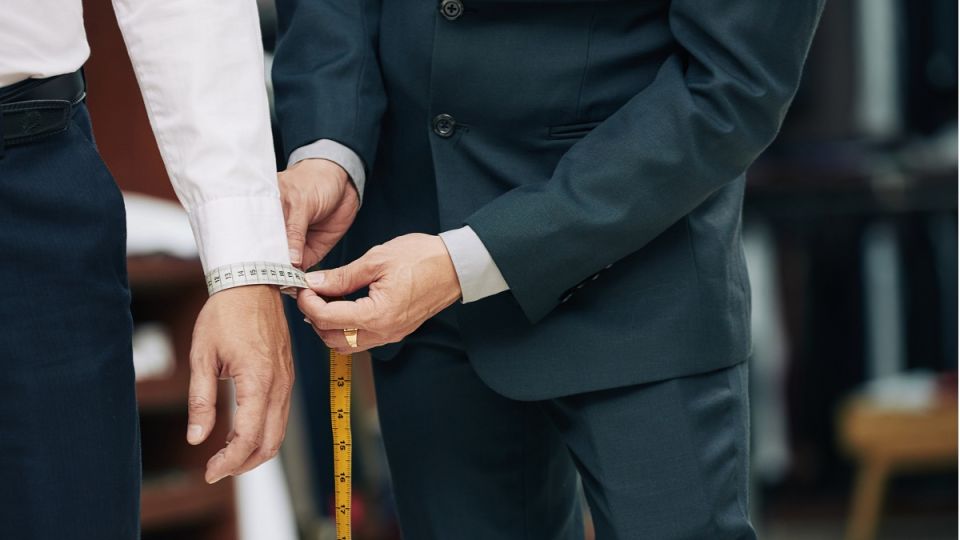February 21, 2022
NEW DELHI – In the Indian market, bespoke clothes have been around for a long time. It has been here for a long time, long before ready-to-wear apparel businesses entered the scene. Bespoke has existed for a long time in India, and until the late 1990s, the population of India wore tailored apparel. This was true until the arrival and growth of international and domestic fashion brands in the country, as well as the rise of ready-to-wear items, which have effectively replaced the bespoke category. Consumers are gradually moving away from traditional solutions in favor of more readily available alternatives.
Years passed, and bespoke resurfaced, with slight enhancements in some parts. This was due to the fact that there were still a few clients who had different product expectations than I had. Over ready-made garment firms and old-fashioned tailor-made garments, they demanded a better fit and quality. In reply to this new need for impeccably gorgeous apparel, the establishment of an organized custom clothing sector began on the high street shops of metro cities. With this comes superior quality and a better fit than traditionally fitted apparel, as well as a wave of new businesses entering the market.
The Rise of New Customized Startups
These new business owners started companies that focused on giving an experience rather than just a product. The customized apparel sector has its share of obstacles, but it also has its share of potential, which is why new businesses are entering the market and attracting a slew of new clients. Earlier readymade labels, showrooms, and e-commerce marketplaces arose in India, clothing was usually sewn by a local tailor. Bespoke apparel is progressively gaining traction as a viable alternative to ready-to-wear businesses.
Bringing Technology and Fashion Together
New firms are embracing a technology-focused lean methodology to boost customer happiness by regularly testing their products, getting user feedback, and engaging with influencers. Because of the rapid advancement of fashion technology, firms are upgrading their supply chains, developing digital channels, and establishing relationships with customers, all while increasing revenue. With and without a physical store, COVID-19 has underlined the need of renewing your customer experience by adopting change and technology innovation.
The Bespoke Fashion and Clothing Industry’s Digital Transformation
In the garment production process, a few fashion businesses are leveraging digitalization in VR/AR configuration, 3D design and graphics, Virtual Fitting and trial Rooms, Digital Apparel, AI Buyer Prediction, Testing, and employing Sustainable Materials. A bespoke clothes online marketplace is also being developed by a number of businesses to give a platform for buyers to select fabrics, accessories, and styles, as well as for designers, tailors, and manufacturers to connect with interested consumers for their products. The following are some of the characteristics that these internet marketplaces provide:
AI-powered product design
By scanning and analyzing millions of data on different social media platforms, marketers can now accurately estimate demand and customer trends, and then schedule their product releases accordingly, thanks to AI and data analytics.
3 D software and apps dedicated to Tailor-Made Clothing
Buyers may now take photos of themselves and post them to the 3D design app. The program will generate a 3D model that the customer might try on new clothes from their home, making it an ideal tool for customized apparel shopping. Other apps include bespoke apparel design in 3D view, quick order tracking with ERP, confirming orders via WhatsApp using a 3D engine, and a virtual QR textile sample book, among others.
Getting the Goods of Your Dreams
Buyers may now upload a photo of clothes from any source and identify the best appropriate product from the brand’s website, thanks to visual AI, natural language processing, and tailored search engines.
Solutions for Augmented and Virtual Reality
AR and VR systems have greatly improved for serving customers remotely and for contact-free purchasing in retail stores. Bespoke clothing manufacturers may now provide customers with a 3-dimensional e-commerce experience that allows them to visualize and compare products from anywhere.
Startups in the bespoke clothes industry have distinct characteristics
At the moment, all fashion startups are attempting to build technology that will set them apart. They do so either internally or through collaborations with fashion brands that require that technology. Consumers have grown accustomed to trying on premade items that are just too tight or too loose thanks to the eCommerce fashion sector. Bespoke brands may now provide their customers with a one-of-a-kind purchase experience thanks to advancements in technology such as 3D modeling and digital body measurement tools.
Good, old-fashioned bespoke
On the other side, there are businesses that place a strong emphasis on their heritage and encourage the usage of traditional bespoke apparel. Buyers’ fashion taste is shifting in a new path of self-expression. With the market’s rapidly expanding selections, bespoke apparel incorporates all of a buyer’s traits and personal preferences by providing unrestricted customization to meet the customer’s wants.
The Indian bespoke business is booming, despite the introduction of numerous ready-to-wear firms in the apparel market. A wave of new firms, including regional and internet players, have emerged in recent years, but demand for bespoke clothing has remained consistent, indicating that the industry is here to stay and going to get bigger. Mass customization and personalized production will grow more as technology progresses, hastening the change in customer preferences toward bespoke. With more people preferring clean, custom-made clothing to ready-to-wear clothes, the segment is growing year over year and is set to become a fad in the future.


